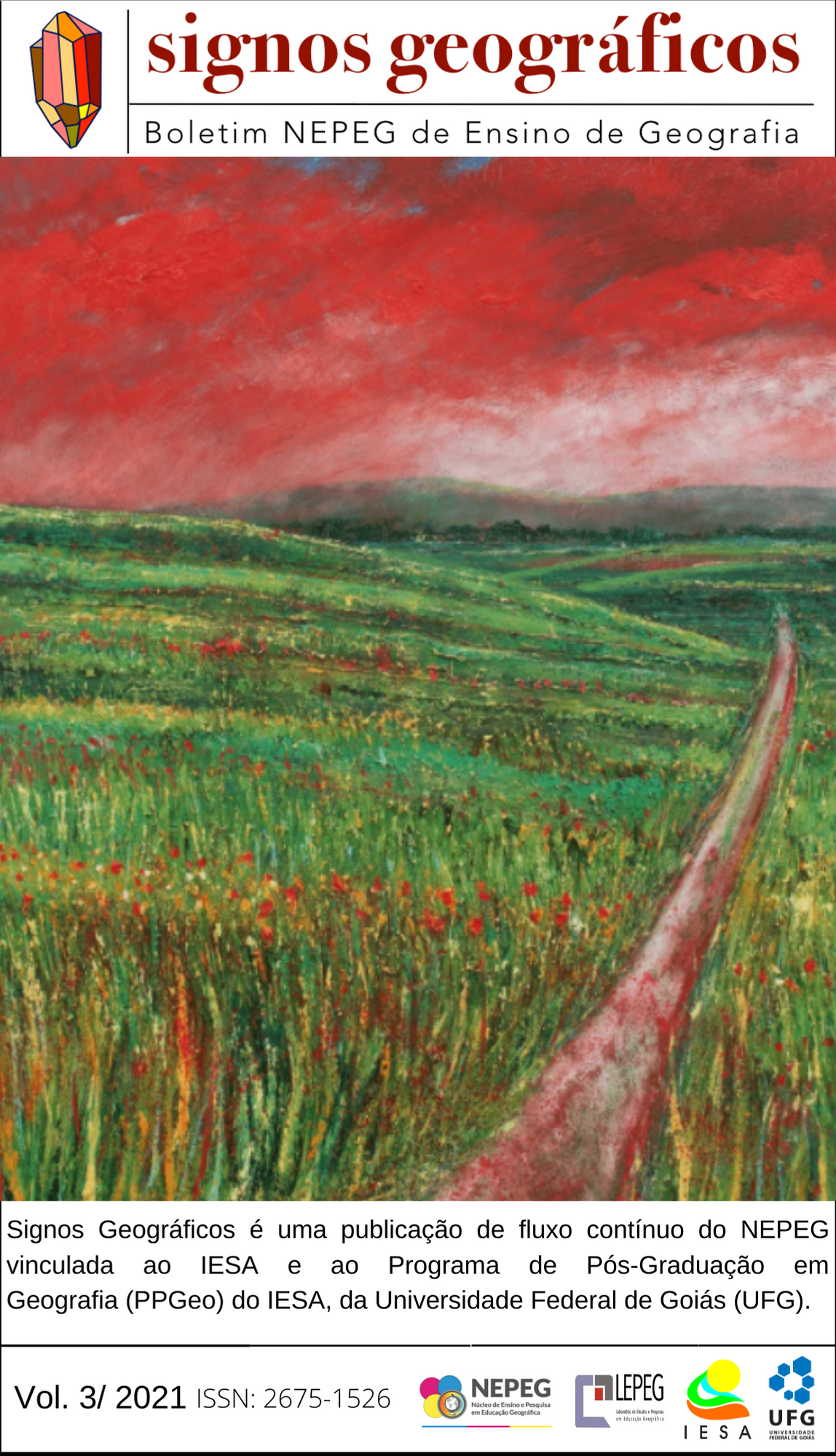CONSTITUENT ELEMENTS OF GEOGRAPHICAL REASONING: A THEORETICAL DISCUSSION FOR BASIC EDUCATION
Keywords:
geographic thinking, geographic reasoning, cognitive processesAbstract
The appearance of lines of research in the area of teaching Geography promoted the increase of academic research related to School Geography. In view of this, several concepts emerged that deal with their role in school, such as spatial thinking, geographic thinking, geospatial thinking, spatial reasoning, geographic reasoning, to name a few. This work aims to discuss theoretical elements that constitute geographic reasoning in Basic Education. For that, a bibliographic research was carried out, using the qualitative approach in the surveys and in the interpretation of the data. The results showed that Geography at school has the function of promoting geographic thinking that contemplates several dimensions, affective, social and intellectual. The intellectual dimension is a perspective provided by the geographical reasoning of making analogies, inferences, deductions, connections, to cite some examples, anchoring on the concepts (space, territory, landscape, place, region) and the logical principles (location, delimitation, connection, network, scale, distribution, position, extension) constituents of geographic knowledge.








